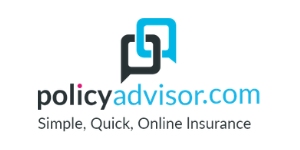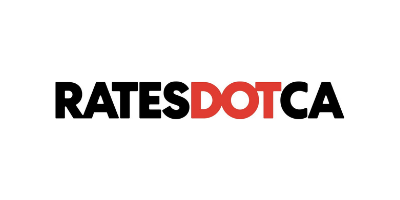Accidents, illnesses, and loss of personal assets can occur when we least expect it, resulting in financial devastation that wipes out our life savings or severs our ability to earn income. To protect yourself and your loved ones against these rare but costly events, it’s necessary to obtain insurance.
Insurance is a legal agreement between you and an insurance company. In this type of contract, you make regular payments (called premiums) to an insurance company in exchange for their promise to compensate you for losses associated with a particular unforeseen event. You’re essentially transferring your financial risk to the insurer.
Insurance is vital because it provides financial security for you and your family. It provides you with the financial resources to help you navigate unexpected events more easily than if you were on your own.
4 Major Types of Insurances
There are many types of insurance available, and each exists to serve a particular purpose. Given that you don’t have the foresight of every scenario that can occur, it may seem the ideal solution is to purchase as much coverage as possible. However, obtaining every type of insurance contract imaginable is impractical and expensive, so you should only seek insurance that caters specifically to your needs and lifestyle.
The four most common types of insurance products are home insurance, car insurance, disability insurance, and life insurance.
Home Insurance to Protect Your Home
Home insurance protects your home against damage, theft, and liability resulting from an injury on your property. Home insurance policies are available for renters as well, who wish to protect their personal belongings.
Home insurance covers your home’s replacement cost, additional structures attached to your home, the contents inside your home, and temporary living expenses incurred should you be unable to reside in your home following a disaster. Legal costs resulting from persons injured on your property are also covered.
Car Insurance to Protect Your Car
Car insurance protects you from damage done to your vehicle and liability resulting from collisions.
Car insurance covers damage done to your vehicle in a collision, bodily injury and property damage inflicted on pedestrians, injury costs for you and your passengers, and damage to your vehicle resulting from falling trees, vandalism, etc.
Disability Insurance to Protect You
Disability insurance reimburses you for lost income resulting from an injury that prevents you from being able to work. It typically replaces between 60% and 85% of your income for a specific time. Short-term disability insurance provides coverage for about 6 – 12 months, while long-term insurance can provide benefits anywhere from 2 to 5 years, although certain policies will cover you until age 65.
Your policy may also pay for costs associated with your rehabilitation or provide reimbursement for retraining should you wish to go back to school or upgrade your skills.
Do you qualify for the disability tax credit?
Life Insurance to Protect Your Loved Ones
Life insurance provides coverage for your family’s debts and expenses, ensuring they are taken care of financially in the event of your death.
Life insurance can be used to cover funeral and burial costs, settle debts, or pay for everyday expenses. In general, your beneficiaries have discretion in how the paid-out funds are spent.
The most popular types of life insurance are term life insurance and permanent life insurance.
Term life insurance remains active for a specific time until it comes up for renewal. If you die while the policy is in effect, your beneficiaries receive a tax-free payment. Premiums are fixed during the time frame of the policy.
Permanent life insurance provides coverage for your whole life, with no need for renewal. Some policies have a tax-deferred investment component, allowing you to grow cash over time. As with term insurance, your beneficiaries are entitled to a tax-free payout in the event of your death. The premiums generally don’t increase over time.
Best Life Insurance Providers in Canada
Cost of Insurance
Various factors affect the cost of insurance. Some of the most common are:
- Type of policy – Comprehensive policies that protect against many contingencies are more expensive than basic, no-frills policies.
- Coverage amount – In general, the more coverage you request, the more you can expect to pay.
- Deductible – A higher deductible results in lower premiums and vice versa.
- Age – Your age plays a prominent role in determining your premium.
- Gender – Gender affects the cost of certain insurance policies as statistical data indicates your gender predisposes you to certain unique risks.
- Claim history – The more numerous your claims, the more expensive your policy will be, as insurers view you as a high-risk client.
- Health – Your premium is usually inversely related to the state of your health; the worse your health condition is, the more you can expect to pay for your policy.
Factors Specific to The Type of Insurance
Below is an overview of the specific factors insurers consider when setting your premiums based on the insurance policy you’re applying for.
Life Insurance
- Age – Your age is the primary factor assessed by insurers. The older you are when applying, the larger your premium, as the likelihood the insurer will have to pay out your policy is higher.
- Gender – On average, women live longer than men, which means they generally pay a lower premium.
- Health – Insurers may ask for your medical records and require a medical exam to assess your health. A poor health record increases the cost of your policy.
- Smoking – If you smoke, you’re at risk for developing a severe illness, such as cancer, which results in higher premiums.
- Family health history – Insurers may examine your family medical history to determine if you’re prone to developing a major illness.
- Occupation – Certain occupations are considered riskier than others due to hazardous work environments and dangerous duties. The added risk will be reflected in higher premiums.
- Hobbies – If you enjoy engaging in high-risk activities, this could lead to a more expensive insurance policy.
Car Insurance
- Make and model – Insurers look at aspects such as the car’s value, safety features, and risk of being stolen when setting your premium.
- Car age –In general, a newer vehicle is more expensive to insure.
- Driving record – If your driving record is filled with accidents, speeding tickets, and other driving infractions, your premium will be higher. How long you’ve been licensed for is also important, as it indicates experience.
- How often you drive – Insurers will estimate how many kilometres you drive each year. If you use your vehicle frequently, expect to pay a higher premium.
- Where you live – The cost of car insurance varies from city to city.
- Your age – if you’re under 25 years old, you’ll be assigned a higher premium.
Home insurance
- Value – Higher-priced homes cost more to rebuild or repair, so expect to pay more.
- Age – An older home with unique features and outdated plumbing and electrical systems costs more to insure.
- Condition – If your home is in poor condition, it’s more susceptible to damage, so expect to pay a higher premium.
- Location – Homes in high crime neighbourhoods or areas vulnerable to natural disasters tend to cost more to insure.
- Home security – Security systems dissuade criminals from entering your home to steal valuables, so installing one can decrease your premium.
- Additional structures – Expect to pay a slightly higher premium if your property contains other structures, such as a swimming pool.
Disability Insurance
- Age – The younger you are, the less likely your risk of developing or experiencing a disability, and therefore the lower your premium.
- Gender – Actuarial studies show that women file more disability claims than men, resulting in them receiving higher premiums.
- Health – Insurers look at your present and past health status to determine your risk of developing a disability, so it’s wise to acquire disability insurance when you’re in good health.
- Smoking – If you’re a smoker, be prepared to pay higher premiums, as your more likely to become seriously ill.
- Occupation – An individual working from a home office is less at risk of getting injured than a construction worker, so they pay a lower premium.
Mistakes to Avoid When Getting Insurance
- Buying more than you can afford – Choose a policy you can afford – avoid superfluous coverage that provides little value so that you can secure a lower premium. You can always upgrade your policy or switch to a different insurer in the future once you can afford to do so.
- Not understanding your policy – Read through the policy carefully, scrutinizing every detail. Ask your insurer what’s covered and what’s not, and have them explain any terminology you don’t understand.
- Not doing any research – Ensure you conduct research on prospective insurers and their policies. A reliable insurer should have a quick and easy application process, provide quality customer service, offer affordable premiums and discounts, and facilitate easy claim submission.
Insurance FAQs
Should I get term or permanent life insurance?
Can I buy insurance online?
What will happen if I lie on my insurance application?
Bottom Line
Insurance is a valuable tool that can help protect your assets and your family should disaster strike, causing undue hardship. Having the right types of insurance policies as part of your financial plan will provide you with financial security and peace of mind, allowing you to live your life with a little less stress and worry.






